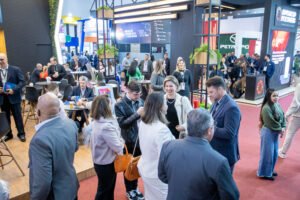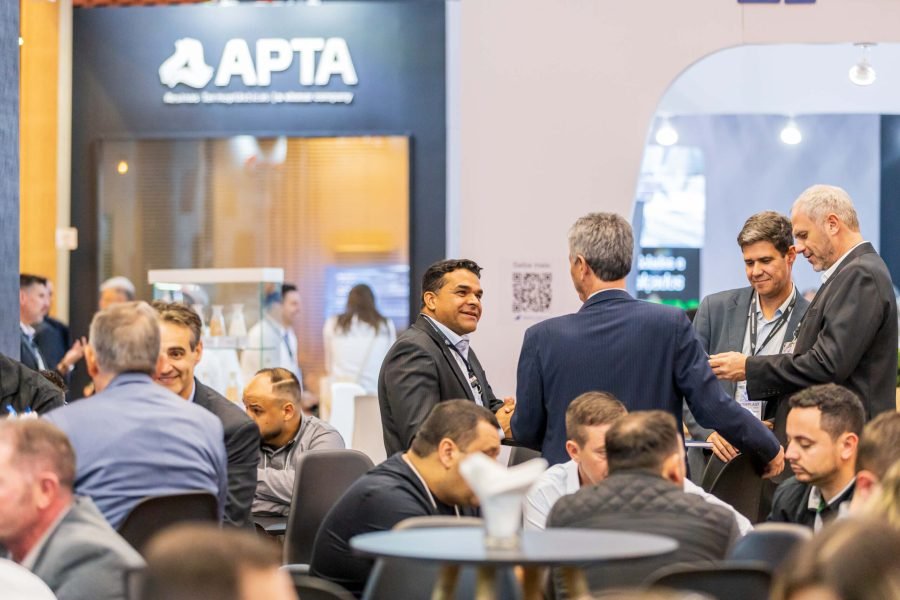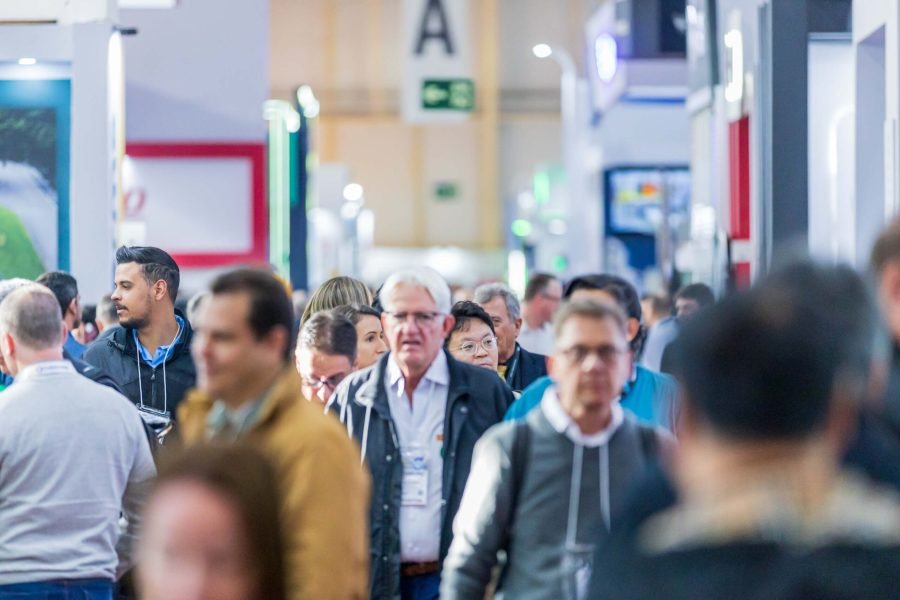
The 13th edition of Interplast – Trade Fair and Congress for the Integration of Plastics Technology, organized by Messe Brasil, will be held from 25 to 28 August 2026 in Joinville, one of the main hubs of Brazil’s plastics processing industry. The most populous city in the state of Santa Catarina is also home to the country’s second largest tooling center, especially those focused on the production of plastic molds for injection and extrusion.
Sustainability will be one of the main themes at the next Interplast, with an emphasis on ESG practices, solutions for the circular economy and innovation in recyclable and biodegradable materials. “The fair will also have a themed space focused on sustainability that will be developed in partnership with organizations and exhibitors to highlight the importance of circularity,” said Richard Spirandelli, director of Messe Brasil.
Interplast has established itself as one of Brazil’s leading events and the only one that brings together the entire plastics chain in the same environment, ranging from mold suppliers to raw materials, machinery and equipment, as well as simultaneous technical knowledge activities and business roundtables. The organizer’s expectation is to surpass the success of the previous edition of Interplast, in 2024, which already occupied 100% of Expoville’s three pavilions (25,000 m²), brought together 400 exhibitors and more than a thousand brands, received 32,000 visitors, with an estimated R$ 300 million in business within 12 months of the event.
The event organizers expect a 20% increase in visitors, especially from other South American countries. “The increase in business during the fair and in the following 12 months should also be higher, and could exceed R$ 500 million,” predicts Spirandelli.
Interplast is the only trade fair that brings together the entire plastics chain and shows the strength of the state of Santa Catarina, which has high growth rates in the industry and concentrates some of the main plastics processing companies in Brazil, recognized for the quality of their products worldwide.
Santa Catarina ranks second in the country in terms of job creation and plastic processing and recycling companies. There are 1,319 companies employing around 48,400 people and it is estimated that there are twice as many indirect jobs. Among the companies in the state are manufacturers of technical parts, packaging for preserving food and medicines, transportation articles, construction products, auto parts, electronic parts, household appliances, household utilities and disposable products.
Santa Catarina’s plastics industry stands out on the national scene due to its skilled workforce, as well as the presence of public and private educational institutions, which provide training opportunities for professionals. Another striking feature is the well-defined focus of activity by region of the state: the South in disposables, the North in construction products and technical parts and the West in packaging. In addition, access to a variety of energy sources, including renewable sources such as solar energy, port services, quality of life and investments in technology and innovation are determining factors in making Santa Catarina stand out on the national industry scene.
“Interplast brings together opportunities, innovations and various technologies to enable investment and the constant modernization of Santa Catarina’s industry,” says the director of Messe Brasil.
For Joinville, the city hosting the event, Interplast boosts the local economy by attracting thousands of tourists and generating indirect jobs. The event fills the local hotel network and hosts visitors in other cities in the region, increases flight occupancy at the local airport and in the region, as well as increasing sales in local shops, restaurants, shopping malls and tourist attractions.
SUSTAINABILITY, KNOWLEDGE AND BUSINESS EVENTS
In addition to the trade fair, Interplast’s technical program will be reinforced by the CINTEC Plastics 2026 Congress, which will address issues related to Sustainability, innovation and technologies for the plastics processing industry. Exhibitors will have the opportunity to present their solutions and technologies through workshops aimed at industry professionals.
“We’re going to focus on parallel events, seeking to present news and topics that bring competitiveness to the industry, partnerships with national and international organizations to broaden the scope of the fair, in order to increase the number of visitors from other countries, especially South America,” says Spirandelli.
The Business Roundtable is another consolidated space at the event and brings together buyers and suppliers at negotiating tables, including segments such as Automotive, Packaging and Construction, with a focus on doing business.
“The plastics industry from all over the country finds in Messe Brasil’s events the opportunity to develop suppliers with access to innovation and technologies, and the continuous renewal of the network of relationships, in these 27 years of presence in the market,” Spirandelli points out.
PROFILE OF THE PLASTIC PROCESSING AND RECYCLING INDUSTRY
The plastics sector is of strategic importance to Brazilian industry, ranking among the country’s five largest industrial segments. Data compiled by the Brazilian Plastics Industry Association (Abiplast) in the ABIPLAST 2023 Profile show that the sector has a turnover of more than R$130 billion a year in Brazil and directly employs around 379,000 professionals in more than 14,200 processing and recycling companies.
Santa Catarina ranks second in the country in terms of job creation and processing and recycling companies, with 1,319 companies employing around 48,400 people São Paulo leads the way in terms of the number of companies and jobs in plastics processing and recycling. There are 5,793 companies and more than 159,000 jobs.
The volume of plastic products consumed annually in Brazil reaches 7.49 million tons and 7.04 million tons of plastic products manufactured in the country. The plastic recycling industry mechanically processes 1.1 million tons a year. As a result, 25.6% of all plastic waste generated in the year is returned to the market as post-consumer recycled resins (PCR).
Abiplast’s survey also shows that the plastics industry’s average annual investment projection reaches R$10.5 billion, driven by factory expansions, the development of sustainable packaging to meet both legislation and international standards, new recycling technologies and improved reverse logistics. The total invested between 2025 and 2027 is expected to reach R$31.7 billion.
In addition, waste recovery capacity is expected to grow by 36% by 2026, supported by investments in mechanical and chemical recycling, as well as the strengthening of reverse logistics systems.
ABIPLAST has led structuring initiatives aimed at the circular economy, such as the Recircula Brasil platform, which promotes the traceability of plastic waste from its origin to its reintroduction into the market as new products. A total of 304 suppliers of waste or PCR resin were tracked, located in 11 states, especially SC, RS, PR and SP. Most of the material (62.5%) comes from the wholesale trade, followed by the processing industry (14.8%) and cooperatives (4.3%).
SERVICE
Interplast – Plastics Technology Integration Trade Fair and Congress Date: August 25 to 28, 2026
Time: 1pm to 8pm
Location: EXPOVILLE Convention and Exhibition Center – R. XV de Novembro, 4315 – Glória, Joinville – SC
Presentation: APTA Sponsorship: IMERYS
Promotion: Simpesc (Plastics Industry Union of SC) Institutional Support: ABIMAQ, ABIPLAST, FIESC, ABINFER, ADIRPLAST and Think Plastic Brazil
Organization: Messe Brasil


